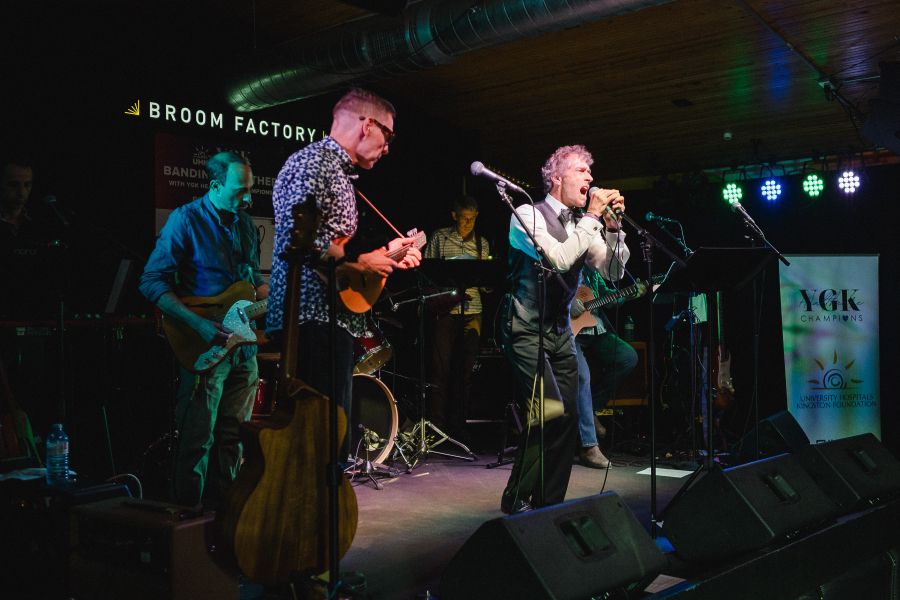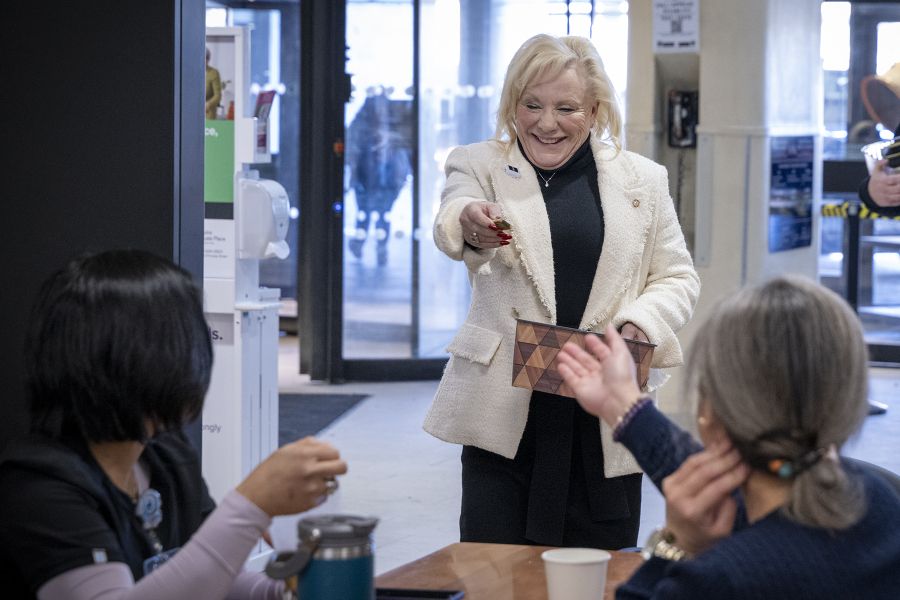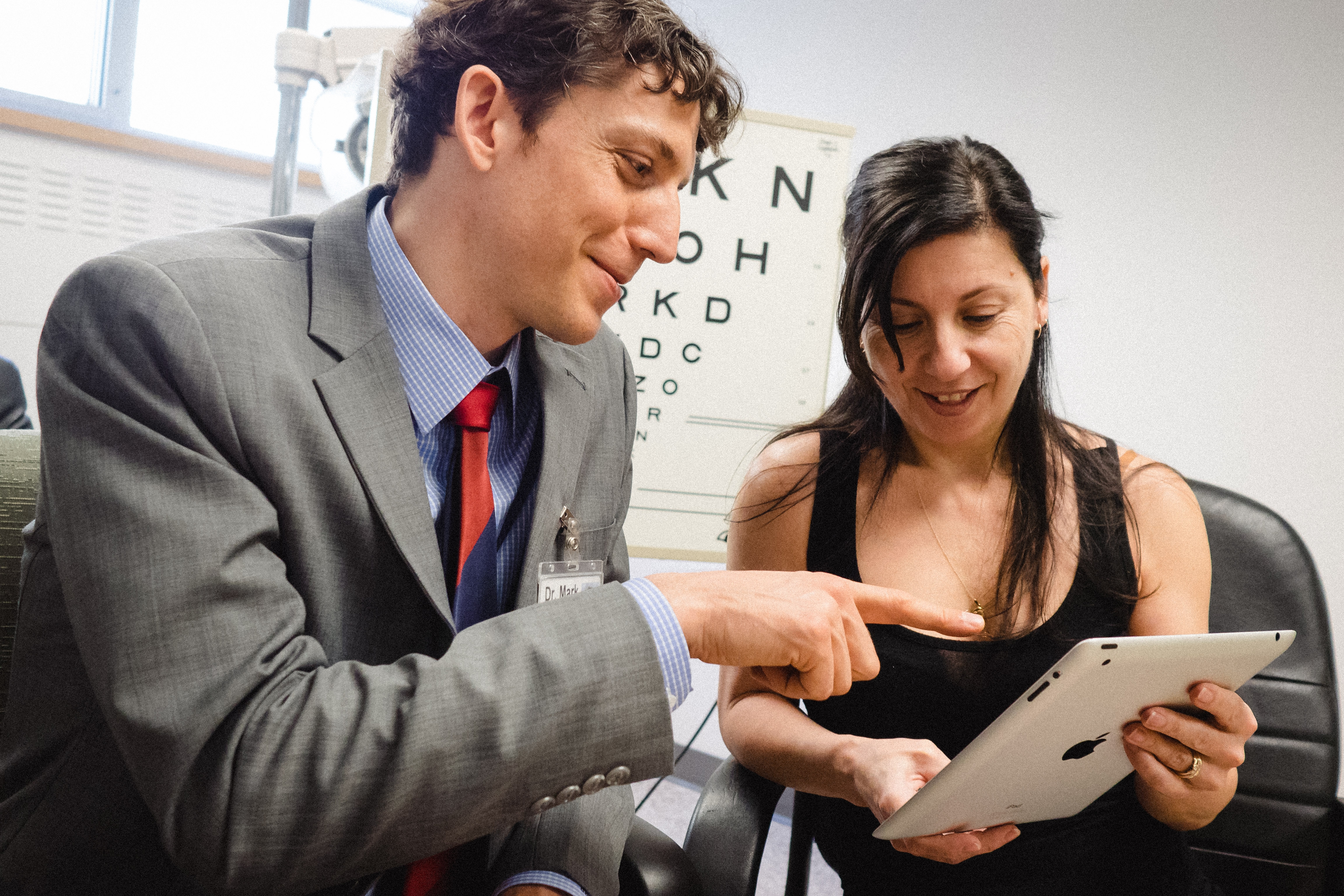
A first-of-its-kind model of care at Kingston Health Sciences Centre (KHSC) has the potential to be life-changing for individuals with vision loss that is untreatable medically, surgically or with standard eyeglasses.
The South East Ontario Vision Rehabilitation Service (SOVRS) has set its sights on boosting the safety, independence and quality of life of individuals with vision loss, says Dr. Mark Bona, an ophthalmologist specializing in vision rehabilitation at the Hotel Dieu Hospital (HDH) site of KHSC.
“Vision loss can have a huge impact on people’s lives, everything from increasing their risk of falls and clinical depression to reducing their income and chance of employment,” says Dr. Bona.
“In addition to doing everything possible to restore vision, we need to look at ways to help individuals use their remaining vision, connect them to appropriate services and teach them skills to self-manage. Vision loss rehabilitation is about improving people’s ability to function independently and participate in society.”
For the first time in this province, existing vision assessment and rehabilitation services across a region are being integrated into a single system of care.
Under the SOVRS umbrella, people with vision loss can access a team of vision rehabilitation professionals who provide assessment and tailored rehabilitation plans that include learning adaptive strategies for daily activities such as identifying money or cooking, using visual aids and technologies such as video magnifiers and tablets, and accessing available funding and support services close to home.
The model is a collaboration between the Vision Rehabilitation Clinic at the HDH site and Vision Loss Rehabilitation Ontario, a division of the Canadian National Institute for the Blind. The service is funded by the South East Local Health Integration Network.
About 5,000 people in our region live with vision loss, estimates Dr. Bona, but only about 20 per cent of them realize that vision rehabilitation services exist or have access to them.
One of those is Kingston’s Catherine Whittaker, a 67-year-old retired teacher with profound vision loss due to end-stage glaucoma. For her, tapping into vision rehabilitation at the HDH clinic was “life-altering.”
“I don’t use that word lightly,” she says, “but after learning how to use an iPad to access online books, library services and more, I felt like I had finally entered the 21st century. I can get news and commentary, which means I can be a political person again and make thoughtful choices. I didn’t want to be sidelined by low vision. I wanted to keep learning, be independent and engaged in life. I have all that now, and I have hope.”
Family doctors, ophthalmologists, optometrists or other healthcare professionals in this region can refer to SOVRS, which uses a centralized intake and triages according to acuteness of vision loss, level of risk and other relevant factors. A system navigator works with individuals to identify their goals and connect them with the assessment and rehabilitation services that are right for their individual needs.
“We know that the incidence of vision loss is escalating with our aging population and that the HDH eye clinic doesn’t have the capacity to assess and treat everyone,” says Dr. Martin ten Hove, head of the department of ophthalmology at KHSC and Queen’s University. “The SOVRS model is an ideal solution because it connects, coordinates and maximizes resources. That translates into better quality care.”
Dr. Bona wants others living with vision loss to experience Catherine Whittaker’s sense of hope.
“Some vision loss can’t be restored,” he says, “but our new holistic model of care can provide people with better and faster access to techniques, equipment and services that have a positive impact on quality of life.”
For more information about SOVRS, please contact @email or 613-544-3400, ext. 3160.
Gallery
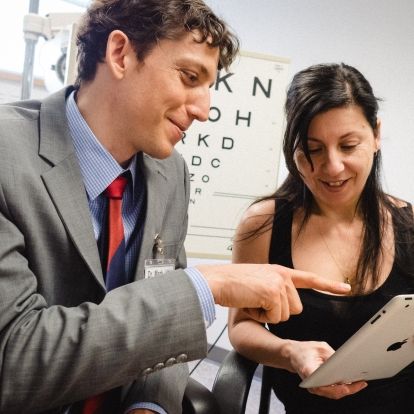
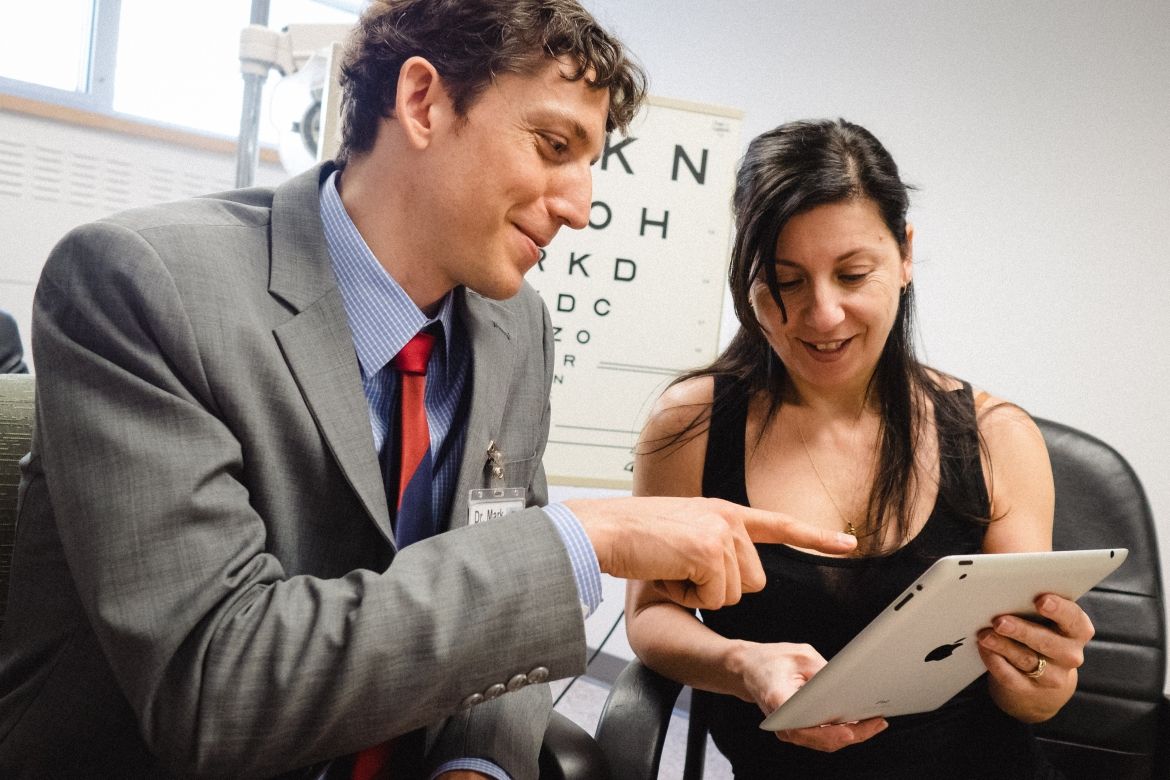
Dr. Mark Bona (left) and a patient in the Vision Rehabilitation Clinic at the HDH site: the use of visual aids/technologies such as tablets can improve a person's ability to function independently and participate in society.

